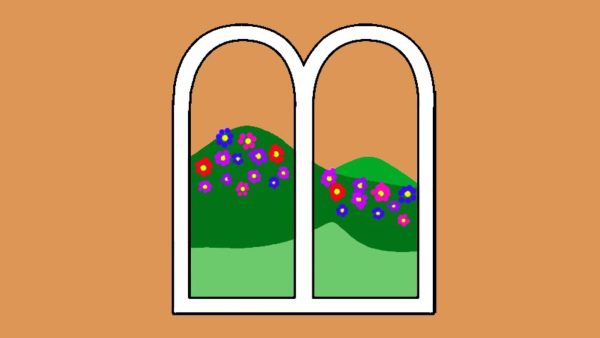SUMMER PARSHA: In Chukat, with just a few sharp words, Moses changes the ending of his story
It wasn’t just that he hit the rock
PARSHA: Parshat Chukat will be read on the Shabbat of June 24, 2023
Many say that Moshe’s most transgressive sin took place in Parashat Chukat, when he famously struck a rock to bring forth water instead of speaking to it as God had commanded. According to many of the mefarshim, or commentators, this is why he wasn’t allowed to enter the land of Israel. We usually just accept this as a fact. But I would like to provide some nuance to this story.
First, a brief summary: In this parsha, which begins at Bamidbar, Chapter 19, verse 1, and will be read June 24 during summer vacation, Miriam, Moshe’s sister, dies and the people of Israel need water, which she had always found for them. They complain, saying that it would’ve been better had they died in Egypt. Keep in mind, Ibn Ezra and many other mefarshim state that this was the second generation out of Egypt, since the whole group wandered in the desert for 40 years.
So Aharon and Moshe go pray to God. God tells them to take a rod and speak to the rock for water to come out. According to Rashi, the problem with the situation was that after accidentally speaking to a different rock and not seeing any results, Moses struck it instead.
So Moshe takes the rod ka’asher tzivahu – as God commanded. But then, Moshe says to Bnei Yisrael, shimu na hamorim – “Listen to me, rebels,” and strikes the rod instead.
But it is unclear what Moshe did that was so wrong. Rashi states that it was because he didn’t speak to the rock and instead struck it. This makes sense, but how come Moshe was given the rod? Ramban asks this question and answers by saying that the real sin is what Moshe said: “Shimu na hamorim.”
This is no way to talk to Bnei Yisrael! These are God’s chosen people, the descendants of the patriarchs and matriarchs. But how come this one phrase, the words that slipped out just once, prevents Moshe from completing his story?
I think we can extract meaning from this circumstance about the essence of leadership, but first, from the greater context. These events in Parashat Chukat take place shortly after Moshe’s authority has been challenged by Korach and his rebellious cohort. To make matters worse, Moshe never really felt that he was qualified to lead the Jewish people to begin with. Add the exhaustion from the bickering in the desert and all of the laws given, and it seems miraculous that Moshe was able to retain his sanity!
He had been dealing with Bnei Yisrael for all this time in the desert, through idolatry, complaint and rebellion, and could not have had a more difficult job. Does this not perhaps justify this one mistake after all of the pressure he is in, as the head of the Jewish people?
Well, throughout the Torah, Moshe’s most redeeming quality had been his humility. Moshe believed in God, but not himself. He put the needs of everyone before his own. But in this pasuk (verse), he appears to do the opposite. Instead of trying to empathize with Bnei Yisrael, he talks down to them and places himself above them.
He didn’t listen to God, and in his anger, he cursed them. Moshe’s words in this pasuk reveal a greater problem concerning his leadership.
There is one more problem with Moshe’s words. Moshe and Aharon never credit God for the water that will come out of the rock. They say that that they will supply water for B’nei Yisrael, but the one who is really supplying the water is God. By saying that they will supply water, not God, they are rejecting their servitude to Hakadosh Baruch Hu, Who is really performing all of these miracles. They are failing to reference God’s omnipotence and ability to provide for the people, by not acknowledging him.
Ibn Ezra disagrees with the Ramban and states, “Are we to bring you forth water out of this rock?” “Do we have the power to bring forth water out of this rock for you?”
If this is all true, what makes Moshe so great then? How come the Torah in Sefer Dvarim states that he, not Avraham, Yitzchak, Yaakov or Yosef, was the greatest prophet ever and that nobody will ever surpass him in holiness? Even after this incident, and after God informed Moshe that he would not be able to ever enter Eretz Yisrael, Moshe didn’t stop, rather he continued, knowing he could never achieve his goal. He realized the mistake he had made, the impact and consequences of the mistake, but kept going, even though he now knew he would never set foot in the promised land.
A sad truth in life is that nobody will ever be able to finish their story. There is always something more to accomplish. Another book to write, another film to create, another field to harvest, another experiment to conduct. Moshe was going to pass away at some point, and there needed to be someone to succeed him eventually. This event marks a transition in the Torah towards an understanding that Moshe’s time on earth, just like everyone’s, is limited.

Etan Lerner, 10th grade, joined the Boiling Point in his freshman year and is now the co-video and podcast editor with fellow sophomore Ariel Mazar. Besides working at the Boiling Point, Etan is a member of the Robotics team and head of the Philosophy and Chess clubs. In his free time, he enjoys listening to music and reading.











